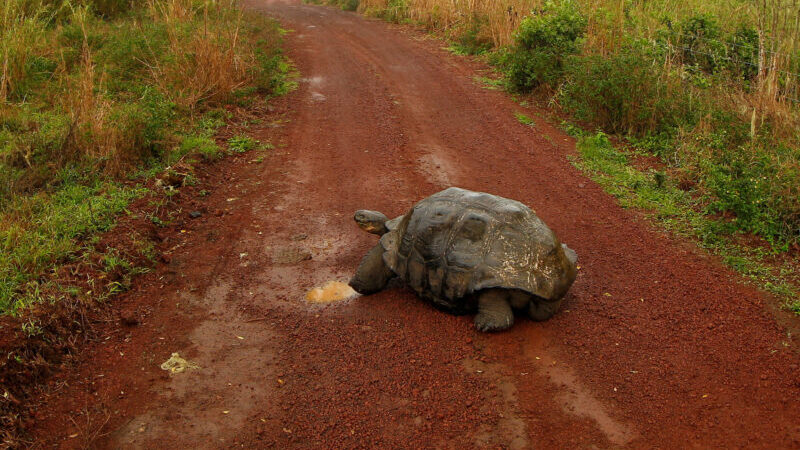Ecuador will get $12 million a year to spend protecting the wildlife and habitats of the Galapagos islands, in the largest “debt for nature” deal yet
Ecuador sealed the world’s largest “debt-for-nature” swap on record on Tuesday, selling a new “blue bond” that will funnel at least $12 million a year into conservation of the Galapagos Islands, one of the world’s most precious ecosystems.
Having bought back roughly $1.6 billion of the country’s debt at a near 60% discount late last week with the help of Credit Suisse, Ecuadorean Foreign Minister Gustavo Manrique Miranda said biodiversity was now a valuable “currency”.
Protecting nature often also benefits the climate as carbon sinks like forests and seabeds are protected. Debt-for-climate swaps are also growing in popularity.
Tuesday’s $656 million “Galapagos Bond,” as it has been dubbed, will run until 2041 and gave investors that bought it a 5.6% “coupon” or interest rate, its bankers said.
Ecuador sovereign bonds currently yield from 17% to 26%, but the new bond has an $85 million ‘credit guarantee’ from the Inter-American Development Bank and $656 million of political risk insurance from the U.S. International Development Finance Corp (DFC), effectively making it less risky.
Debt-for-nature swaps have proved successful in Belize, Barbados and the Seychelles in recent years, but Ecuador’s deal is by far the largest to date, cutting the country’s debt by over $1 billion once the $450 million of total conservation spending is taken into account.
The driver has been the remote Galapagos Islands, some 600 miles (970 km) off Ecuador’s mainland coast, that inspired Charles Darwin’s Theory of Evolution.
Many species on the islands, including giant tortoises, marine iguanas and Darwin’s finches, are found nowhere else on earth so their conservation is seen as vital.
While Ecuador’s government will pocket more than $1 billion worth of savings from the buyback for other purposes, the key appeal has been the environmental benefits and the hope it will be a catalyst for other highly indebted but nature-rich countries.
Giuseppe Di Carlo, director of the Pew Bertarelli Ocean Legacy, one of the groups involved in the deal, said the $12 million a year earmarked for conservation, plus another $5 million a year being put into a fund that should last decades, wer
Read More

